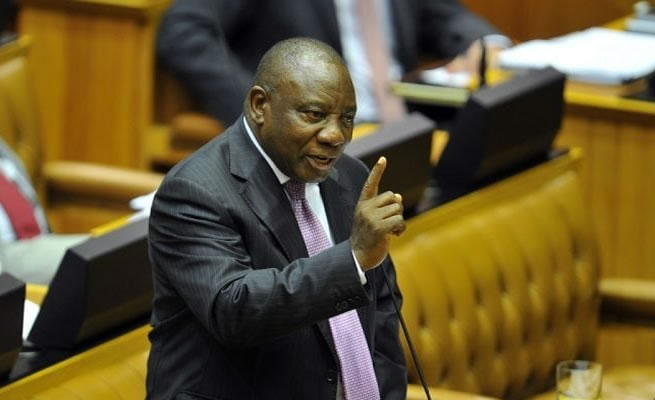JOHANNESBURG – President Cyril Ramaphosa's decision to expand South Africa's cabinet from 62 to 77 ministers, their deputies, and the deputy president has ignited a firestorm of debate within the country. While the move is aimed at ensuring inclusivity in the new Government of National Unity (GNU), it has come at a significant cost to the public purse, with the salaries alone estimated to reach up to R185 million per year.
Ramaphosa's announcement on Sunday of a multi-party Cabinet, including his deputy Paul Mashatile, 32 ministers, and 43 deputy ministers, has left many questioning the rationale behind the bloated composition. Despite his previous promise to streamline the government, the president cited the need for inclusivity of all parties in the Government of National Unity (GNU) as the reason for the Cabinet's expansion.
The African National Congress (ANC) secured the lion's share of ministerial posts, with 20 positions, followed by the Democratic Alliance (DA) with six, and the Inkatha Freedom Party (IFP) with two. The Pan Africanist Congress (PAC), GOOD Party, Patriotic Alliance, and Freedom Front Plus each received one ministerial post. The ANC also dominated the deputy ministerial positions, with 33 deputies, while the DA secured six, the IFP two, and the United Democratic Movement (UDM) and Al-Jama-ah each received one.
Critics argue that the number of deputy ministers, in particular, is excessive and unnecessary. Matthew Parks, a parliamentary counselor for the Congress of South African Trade Unions (Cosatu), expressed disappointment, stating, "What disappoints the most is the number of deputy ministers. That is unreasonable. You don't need such an army of deputy ministers." Parks acknowledged the need for deputy ministers in certain portfolios but emphasized that many departments could function effectively without them.
The concerns over the expanded Cabinet extend beyond salaries and the financial burden it places on taxpayers. The Federation of Unions of South Africa (Fedusa) raised alarm over the lack of consideration for the financial implications of the move. Fedusa believes that the expansion contradicts President Ramaphosa's promise to streamline the government and allocate resources to prioritize the needs of the people. The additional expenses associated with ministers and deputy ministers could divert funds from essential public services, exacerbating the nation's financial struggles.
Herman Mashaba, leader of ActionSA, echoed the concerns, emphasizing the stark contrast between the bloated Cabinet and the country's widespread poverty. Mashaba highlighted the annual cost of over R1 billion in benefits and perks, with ministers and deputy ministers alone receiving more than R180 million in salaries. The expenses extend beyond salaries, with taxpayers expected to cover over R500 million for VIP protection and security, and over R390 million for support staff. Mashaba also pointed out the additional costs associated with luxury residences provided to ministers and deputy ministers.
While some political parties, such as the African Transformation Movement (ATM), acknowledged the need for a comprehensive program of emancipation and called for the economic participation of historically marginalized South Africans, they expressed concern about the potential reversal of progress achieved in the past three decades. The ATM rejected any scrapping of redress policies and emphasized the importance of land reform.
The bloated Cabinet has drawn attention not only for its financial implications but also for its impact on streamlining the government and cutting expenditure. John Mathuhle, spokesperson for Hope4SA, highlighted the challenges of a top-heavy structure and excessive government spending. South Africa's Cabinet, with 32 ministers and 43 deputies, is significantly larger than cabinets in other countries, raising questions about the efficiency and effectiveness of such a sizeable executive.
Political analysts have weighed in on the Cabinet expansion, viewing it as a reflection of compromises made by the ANC and the need for stability in the formation of the new government. Dr. Onga Mtimka observed that the Cabinet allocation resulted from negotiations and compromises between the ANC and other parties involved. Economist Dawie Roodt emphasized the political reality of the situation, stating that the expanded Cabinet was a price paid for stability.

Follow Us on Twitter










